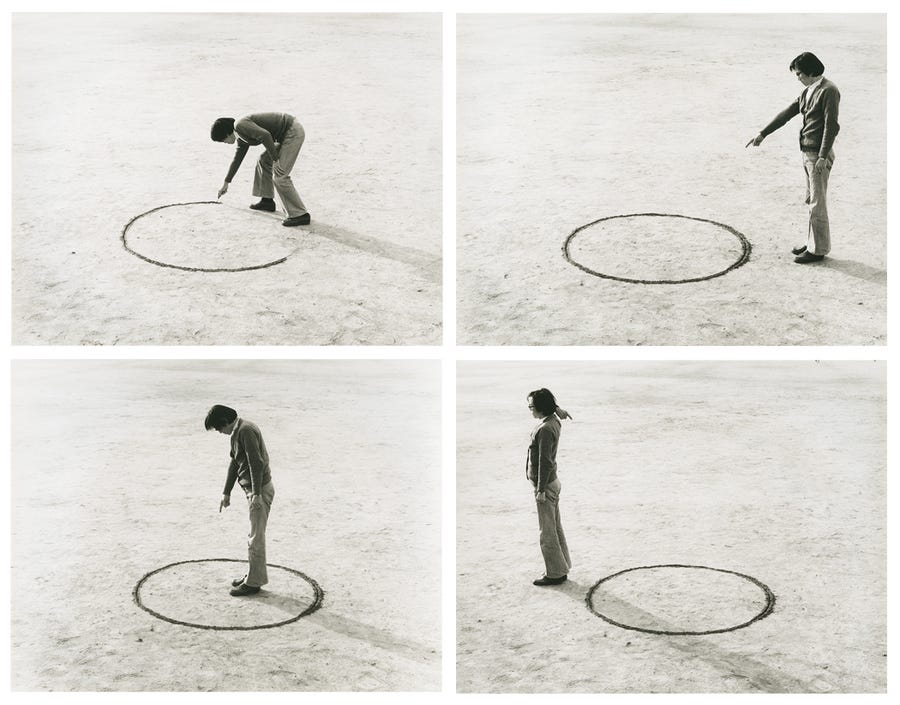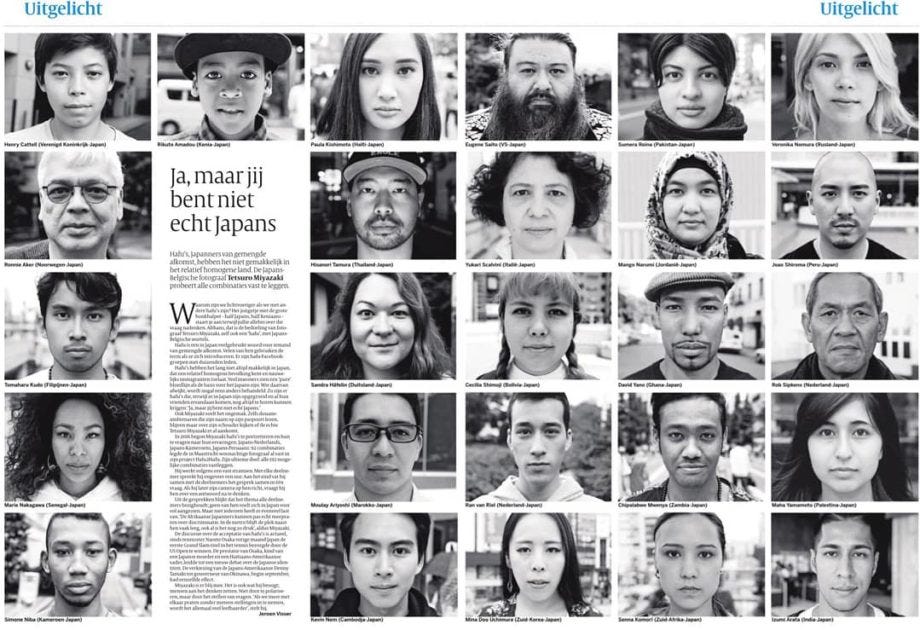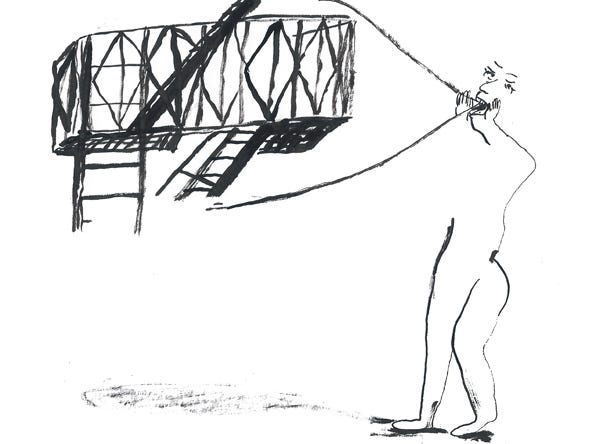[FKPXLS] VOL.43 / Do not fall asleep on the road
The ability to switch effortlessly between languages seemed glamorous. But soon she realized that they do know all the languages, but it's as if they don't understand any of them.





How do we find ways to move forward when there’s no clear path ahead?
One of my favorite professors in college once shared a haunting story.
Professor Law is a passionate Irish lady in her late 50s. She has dedicated her life to studying East Asian culture and language, and the labor politics behind tea production. She'd be reciting a Japanese poem in a silky Hawaiin shirt, hand on her hip, and startle us by yelling in the middle of a stanza at a poor guy dozing off in the back row: “Do not fall asleep in my class."
She also teaches the practice of Japanese tea ceremony at Cornell's museum that overlooks the Cayuga Lake of Ithaca.

The Herbert F. Johnson Museum was designed by I. M. Pei & Partners
These tea ceremonies are indulgent escapes from the intensity of everyday college life. We even had the choice to pick our own teacups from the museum's collection; teacups are an integral part of the ceremony and a showcase of the host's connoisseurial sensitivities. Some cups are delicate and symmetric, sprinkled with impressions of cherry blossom petals. I went with the outrageously deviant ones. They look more like bowls than teacups, with random parts protruding from the surface, like the creator's intentional mishandling when they were having a bad day.
The professor described these cups as an escape from found beauty. Contrary to the refined elegance, they are beautiful in their raw, natural, or imperfect forms. This aesthetic, which celebrates austerity, spontaneity, and apparent artlessness, is known as wabi.
I still remember the peculiar satisfaction when I first learned this word; it captures the beauty that intrigues me yet could never be articulated. It’s as if such word has waited to be discovered, interpreted, and experienced at that moment when I needed to learn about myself the most. It’s so powerful, but it has no desire to impress or inspire. This sensation is commonly found in the Japanese language, which has a tendency to leave the unexplainable unexplained. Words, rather than illuminating and clarifying, are considered obstacles to clear understanding, like how the Zen monks reach their goal of enlightenment not through learning a language but by the unlearning of all preconceived notions of life and reality.
Professor Law told us that she first shared these Japanese words that are not easily translatable with a group of Japanese students who were members of the "Hāfu Club"— a dozen Japanese students, whose parents are international businessmen and women or diplomats. They all knew of each other. Most of them, like their parents, studied economics or engineering. They all somehow end up taking professor Law's class, which has nothing to do with neither subject.

Dutch newspaper ‘De Volkskrant’ published an interview and a selection of 26 humans identified as Hāfu.
Hāfu stems from the word "half" in English refers to Japanese people of mixed heritage, a subtle yet violent violation of the "Japanese purity" narrative. Due to the amount of traveling and migrations growing up, many of them are tri-lingual and even quadrilingual. Having marinated in international schools and the Ivy League, they're well-spoken, well-mannered, well-groomed. Not all members of the club are actually of mixed heritage. Many of them call themselves "migrant children", the amalgamation of every culture but also an outcast of every culture.
The ability to switch effortlessly between languages seemed glamorous. "I was sincerely jealous," Professor Law confessed. But soon she realized that they do know all the languages, but it's as if they don't understand any of them. She also found out that many of these students were hurting, psychologically. Booze, parties, and the endless student club activities were short-lived antidotes.
One of the students named Rio told professor Law that she felt like she could finally start to grasp a sense of herself after taking her class. There had always been words stuck in her throat and they grew like a tumor. There were days she would dream and forgot what language she was dreaming in, only waking up in sweats, not able to recall what happened. The readings and dialogues that the professor introduced opened a door for her to see a way out of a cell that she didn’t even know was there. The limits of her language became the limits of her world.
The professor made a bold assumption that migrant children like Rio were never exposed to the rich history, the cultural ambiguities, and the poetic traditions that give nuance and dimensions to their languages. And she was right. Most of them never really picked up a work of literature of their native tongue, nor did they really appreciate films that sit uncomfortably outside of the American canon. For them, languages are rules to be learned instead of paths await to be explored. The universality of English, and soon to be picked up corporate vernacular, gave them an elusive illusion of safety. Their languages had paved a path of a confident, competent, global-minded youth, a future leader that has been imagined and approved.
Professor Law decided to become the club's faculty advisor. She’s been helping the “migrant children” on Cornell campus for the past decade.
A similar idea can be found in the work of psychoanalysis. In the 1970s, psychoanalysts John Case Nemiah and Peter Sifneos coined the term alexithymic, from Greek a ('without'), lexis ('words'), and thymos ('emotions'). It refers to a cluster of features, including difficulty identifying subjective feelings, a limited imagination, and a style of thinking that focuses on external stimuli as opposed to internal states. Patients with alexithymia would reach an impasse in therapy because of their concrete thinking, limited emotional awareness, and dismissive attitude toward their inner lives. Their inability to articulate their feelings would lead to bodily symptoms such as pain or fatigue, and they use compulsive behaviors such as binge eating and alcohol abuse.
In one of his interviews, Vietnamese writer Ocean Vuong articulated the constructive and restrictive nature of language. To him the making of American lexicon is a violent constraint of our emotional complexity:
You have to articulate the world you want to live in first. We pride ourselves, as a country that's very technologically advanced — we have strong, good sciences, good schools; very advanced weaponry, for sure — but I think we're still very primitive in the way we use language and speak, particularly in how we celebrate ourselves. "You're killing it."
[..] I heard boys talk about pleasure as conquest. "I bagged her. She's in the bag. I owned it. I owned that place. I knocked it out of the park. I went in there, guns blazing. Go knock 'em dead. Drop dead gorgeous. Slay — I slayed them. I slew them." What happens to our imagination when we can only celebrate ourselves through our very vanishing?
Vuong believes that the crisis that drives his uncle to isolation and desperation is a crisis of communication — that they couldn't say, "I'm hurt." After his uncle's suicide, he started noticing fire escapes in the streets of New York.
"What is the linguistic existence of a fire escape?" he asked.

Art | Liam Golden
What if literature, the story, the dialogues in the film, the copies on our screen, at its best, can serve as a fire escape? A space of raw intimacy where we can tell each other honestly how we feel. The series of inquiry inspired the beautiful essay — "The Weight of Our Living: On Hope, Fire Escapes, and Visible Desperation".
How do we find ways to move forward when there’s almost no certainty what’s going to come next? The exploration into new frontiers of language is a lesson as liberating as embracing the humility inspired a strangely shaped teacup and as audacious as building a new town in the wild west. How do we construct fire escapes in the digital maze? How do we supply languages to the silenced inner world, to make the invisible visible? How do we structure the exchange of information that thereby shapes the world?
Designer Josh Munn wrote an insightful piece on Design-ism (the tendency to oversimplify with some hot buzzword) in the world of digital products. His attempt to reframe the language we use to talk about design puts the corporate efficiency and the “move fast and break things” mentality at stake. Yet this is exactly the type of resistance that we want to see.

The newsletter has been a series of inquiries into the art of creating worlds built by technology products. There might not be answers here, only wayfinding. Hopefully the conversations we have here beget more conversations, and that becomes the road, or a road, of finding answers that make the world a kinder and more creative place. That's when I end this long letter with an excerpt from one of our favorites Robert M. Pirsig:
In a car you're always in a compartment, and because you're used to it you don't realize that through that car window everything you see is just more TV. You're a passive observer and it is all moving by you boringly in a frame.
On a cycle the frame is gone. You're completely in contact with it all. You're in the scene, not just watching it anymore, and the sense of presence is overwhelming.
Watch, listen, be brave, and let’s go somewhere —
Tina

Photographer | Laurel Heritage


Self/Care
I’m increasingly inspired by consumer companies breaking away from the constraints of a minimalistic, Uber-looking UI and reimagine how humans interact with our screens. Canadian startup Tru Luv Media invites users into a virtual bedroom where they can accomplish simple tasks such as watering a plant or picking up laundry, to achieve a sense of order and calm.

I’ve been also enjoying Adorable Home. It’s slightly anti #Metoo. I put in my boyfriends’ name as my partner in this game and here’s what I get every day now at 4 PM:

But this game is really damn cute and therapeutic that I’d rather be a bad feminist.


Age is a construct.
“These games all look so interesting. I think if only kids can enjoy such fun, then it’s too unfair!”
Japanese gamer Hamako Mori has just announced some exciting news on her YouTube channel. The 90-year-old streamer has just been awarded a Guinness World Record for the oldest video gamer streamer. One of her favorites is Grand Theft Auto 5 because “it feels like a movie”.

When games create cultural artifacts.
The Animal Crossing Art Generator created by the Getty Museum in April allows players to collect famous pieces of artwork from the museum’s archive and “bring museum artwork into their own virtual homes,” explains the museum’s blog.

When creation becomes a necessity.
And just as people are turning to technology to stay connected, they’re picking up their devices in search of a creative outlet. Creativity is flourishing under quarantine. The Virtual Art Academy’s new enrollments grew fivefold in March 2020 compared to the previous 12 months.
In April, Apple launched Today at Apple at Home, a streamable series of free classes from creative pros at Apple. The classes teach users how to elevate their artistic pursuits on Apple devices, including how to draw playful portraits on an iPad, how to capture striking photography, and how to make movies more cinematic on an iPhone.

David Brook’s graduation speech is the most adrenaline-pumping snack I have all week. It’s not only uplifting but also hella cathartic.
On Success
You happened to have graduated into a global emergency that has interrupted everything. That whole career-track thing you’ve been worrying about? Fundamentally interrupted. Don’t see this as a void; see it as a permission slip.
See it as a permission slip to think differently about time. Usually, time flows continually, like a river, and one thing leads to another. But sometimes time comes in a discrete box. The next two years are going to be a discrete box. Think only about this unusual two-year box right now. You’ll probably have 60 more years after this box is over and they’ll probably be more normal. You can worry about them later.
Use this hiatus to do something you would never have done if this emergency hadn’t hit. When the lockdown lifts, move to another state or country. Take some job that never would have made sense if you were worrying about building a career—bartender, handyman, AmeriCorps volunteer.
On the Importance of Humanities
The biggest way most colleges fail is this: They don’t plant the intellectual and moral seeds students are going to need later when they get hit by the vicissitudes of life. If you didn’t study Jane Austen while you were here, you probably lack the capacity to think clearly about making a marriage decision. If you didn’t read George Eliot, then you missed a master class on how to judge people’s character. If you didn’t read Nietzsche, you are probably unprepared to handle the complexities of atheism—and if you didn’t read Augustine and Kierkegaard, you’re probably unprepared to handle the complexities of faith.
On the Importance of Words
I wonder if you will sense what many of your elders do—that the whole culture is eroding the skill the UCLA scholar Maryanne Wolf calls “deep literacy,” the ability to deeply engage in a dialectical way with a text or piece of philosophy, literature, or art. Or as Adam Garfinkle put it in The American Interest, “To the extent that you cannot perceive the world in its fullness, to the same extent you will fall back into mindless, repetitive, self-reinforcing behavior, unable to escape.”

Fakepixels is a space for courageous thoughts.
We respect ideas, even dangerous ones. We believe in the power of deep thinking, nuanced dialogue, and creative courage.
We are a community with curious thinkers and restless builders who believe the future will be better than the status quo.
Sounds like you? Join the club and bring a friend.

Tina is a designer, writer, and investor who’s online 24/7 hunting for ideas and ventures built with grit and purpose. Born in China. Based in NYC. You can find her elsewhere on Twitter, Instagram, or a corner café.



